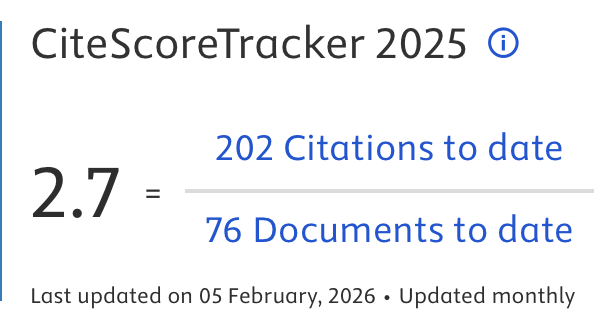Memahami Para Orientalis Dalam Mengkaii al-Quran dan Hadis: Perbedaan Memahami dan Mengimani Menurut Alasdair Macintyre
DOI:
https://doi.org/10.14421/qh.2017.1801-06Keywords:
Unintelligible, intelligible, skeptic, believerAbstract
Kajian yang dilakukan oleh Barat memang unik. Seperti yang dilakukanoleh para orientalis pengkaji al-Quran dan Hadis, semisal Goldziher,
Watt Smith, dan lainnya. Mereka melakukan riset dan memahami alQuran dan hadis tanpa adanya (meng)iman(i) di hatinya. Bahkan skeptik
yang dihasilkan. Melalui kajian yang dilakukan oleh Alasdair MacIntyre,
pembaca dapat memahami, mengapa para orientalis ini tidak mampu
tertembus hidayah meskipun telah membolak-balik pesan al-Quran
dan Hadis. Kajian MacIntyre ini dimulai dari bahasan para antropolog
dalam mengkaji ritual, kepercayaan, dan agama-agama, dengan mencoba
mengeksplorasi makna understand, believe, intelligible, dan skepticism.
References
Abdullah, M. Amin, “Rekonstruksi Metodologi Studi Agama dalam
Masyarakat Multikultural dan Multireligius” Naskah pidato
pengukuhan guru besar ilmu fisafat, UIN Sunan Kalijaga
Yogyakarta, 2000.
Abdullah, M. Amin, Islamic Studies di Perguruan Tinggi: Pendekatan
Integratif-Interkonektif, Yogyakarta: Pustaka Pelajar, 2006
Abdullah, M. Amin, Studi Agama: Normativitas atau Historisitas,
Yogyakarta: Pustaka Pelajar, 1996
Baal, J. Van, Sejarah dan Pertumbuhan Teori Antropologi Budaya, jld. 1, Jakarta: Gramedia, 1987.
Connolly, Peter, Aneka Pendekatan Studi Agama, Yogyakarta: LKiS,
Daeng, Hans J., Manusia, Kebudayaan, dan Lingkungan: Tinjauan
Antropologis, Yogyakarta: Pustaka Pelajar, cet. III, 2008.
Durkheim, Emile, Th Elementary Form of Religious Life, New York: Free Press, 1992.
Giddens, Anthony, Sociology, 3th edition, London: Polity Press, 1997
Kaplan & Manners, Robert, Teori Budaya, Yogyakarta: Pustaka Pelajar, 1999.
Koentjaraningrat, Sejarah Teori Antropologi, Yogyakarta: UIP, 1987.
Lakatos, Imre, “Falsifiation and Th Methodology of Scientifi Research Programs”, dalam Imre Lakatos & Alan Musgrave, Criticism and Th Growth of Knowledge, Cambridge: Cambridge University Press, 1984
Downloads
Published
Issue
Section
License
Publishing your paper with Jurnal Studi Ilmu-ilmu al-Qur'an dan Hadis means that the author or authors retain the copyright in the paper. Jurnal Studi Ilmu-ilmu al-Qur'an dan Hadis uses license CC-BY-NC-ND or an equivalent license as the optimal license for the publication, distribution, use, and reuse of scholarly works. This license permits anyone to copy and redistribute the material in any medium or format and must give appropriate credit, provide a link to the license, and indicate if changes were made. If you remix, translate, transform or build upon the material you may use it for private use only and not for distribution. Jurnal Studi Ilmu-ilmu al-Qur'an dan Hadis granted an exclusive non-commercial reuse license by the author(s), but the author(s) are able to put the paper onto a website, distribute it to colleagues, give it to students, use it in your thesis, etc, so long as the use is not directed at a commercial advantage or toward private monetary gain. The author(s) can reuse the figures and tables and other information contained in their paper published by Jurnal Studi Ilmu-ilmu al-Qur'an dan Hadis in future papers or work without having to ask anyone for permission, provided that the figures, tables, or other information that is included in the new paper or work properly references the published paper as the source of the figures, tables or other information, and the new paper or work is not direct at a private monetary gain or commercial advantage.
Jurnal Studi Ilmu-ilmu al-Qur'an dan Hadis journal Open Acces articles are distrubuted under the Creative Commons Attribution-NonCommercial-NoDerivatives 4.0 International (CC BY-NC-ND 4.0). Article can be read, copy and redistribute the material ini any medium or format under the following conditions:
Attribution — You must give appropriate credit, provide a link to the license, and indicate if changes were made. You may do so in any reasonable manner, but not in any way that suggests the licensor endorses you or your use.
NonCommercial — You may not use the material for commercial purposes.
NoDerivatives — If you remix, transform, or build upon the material, you may not distribute the modified material.










